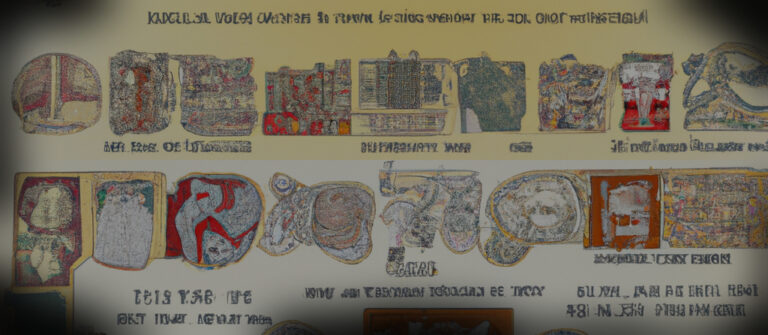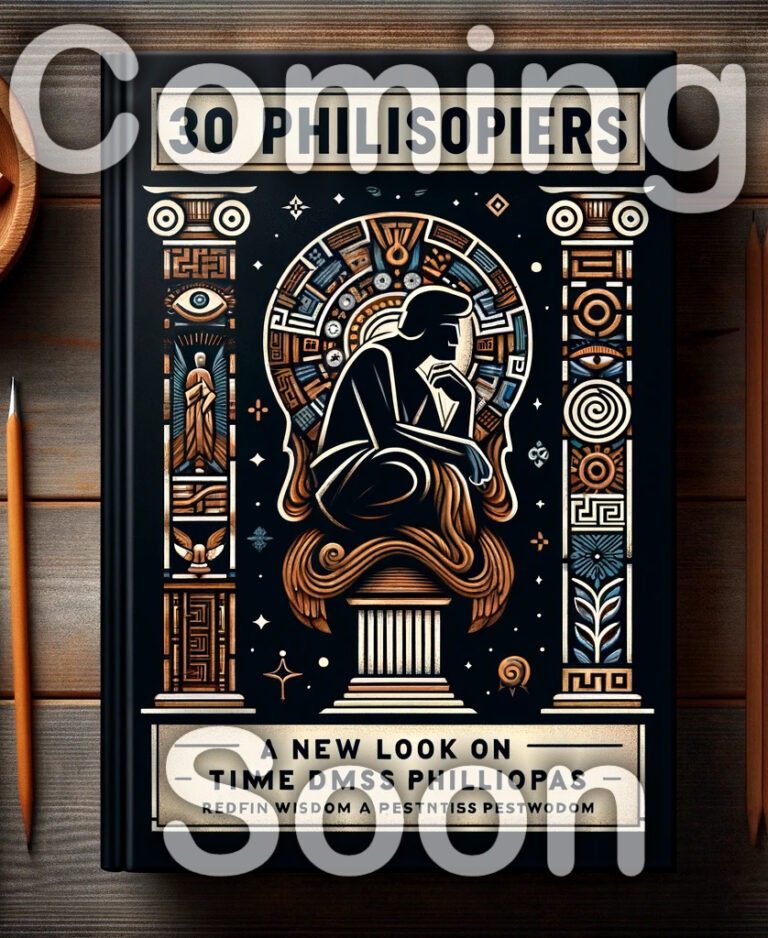Philosophy cannot be reduced to a mere collection of definitions. This commonly held notion is dismissive and an unhelpful perspective. I do agree that any philosophy, including My Philosophy, can be understood better by understanding the definitions used and how they interrelate and contrast, as well as how they compare to others’ definitions and uses. Definitions are crucial to any discussion, including philosophy.
These definitions represent my understanding of essential concepts. They both reflect my philosophy and provide a framework for exploring how others interpret and utilize these terms. By considering the interplay between these ideas and their differences, we can delve into philosophical dialogues that enhance our comprehension of reality.
What follows is a terse definition of each term, related terms also with a terse definition, and a link to an article where I expand on these terse definitions.
Alphabetical List of Definitions
Agnosticism is the philosophical view that the existence of certain metaphysical realities or ultimate truths is unknowable.

An agnostic asserts that it is impossible to either prove or disprove certain claims, such as the existence of unicorns, ghosts, or God. In response to the question, why don’t you believe in God, an agnostic might reply,
“At this stage of humanity, some questions are still unknowable. Just as Daoist philosophy asserts that the true nature of the universe is currently unknowable, I assert that it is currently unknowable whether a god or gods exist. My doubt applies to your version of God, whatever that is, as well as other people’s ideas of a god or the gods.”
Agnostics maintain that the ultimate nature of reality is unknowable or, at a minimum, not yet known. This perspective shares similarities with the concept of the “unknowable Dao” in Laozi’s Daoist philosophy, which emphasizes that the true nature of the Dao cannot be fully comprehended or expressed in words. Both ideas acknowledge the current limitations of human understanding and language.
Authentic Recipe: An “authentic recipe” is a deeper, more comprehensive framework for personal transformation that prompts individuals to question, analyze, and reassess their beliefs, values, and life goals.
This is more of an existential overhaul than a daily guide. It’s a tool or set of tools you use for self-discovery and self-improvement, often involving a rigorous process of introspection and possibly a deconstruction of former beliefs and habits. You might not engage with your authentic recipe daily, but when you do, it’s often a more intensive process aimed at profound transformation.
In Buddhism, the Four Noble Truths and the Eightfold Path serve as an authentic recipe for personal transformation. This isn’t merely about finding temporary happiness but involves deep introspection, ethical adjustments, and a commitment to understanding the nature of suffering and how to transcend it. Similarly, Descartes’ method of doubt serves as an authentic recipe to question and reconstruct one’s foundational beliefs about the world and self.
Cognition refers to the mental processes involved in gaining knowledge through impressions and understanding. These processes include thinking, knowing, remembering, judging, problem-solving, and decision-making. Cognition is more about the mechanisms by which we understand and interact with the world, rather than the subjective experience of being aware. It includes processes such as perception, memory, language, reasoning, and planning.
Consciousness generally refers to the state of being aware of and able to think about one’s own existence, sensations, thoughts, surroundings, and experiences. It’s about the subjective experience of the mind and the world. Consciousness encompasses the awareness of oneself and the ability to experience feelings, sensations, and thoughts. It’s often discussed in the context of the question of what it’s like to experience something – referred to as the “qualia” of experience.
Dualism posits that the mind and body are distinct entities. The idea that the universe is a single system worthy of holistic analysis is a separate concept. In other words, I believe the universe is a single unified system, and within that system, either the mind and body are separate (dualism) or not (nondualism), and welcome discussions on both, although I do lean toward a dualistic view and think the view that the body is just a machine running a program could very well be true. If so, uploading your mind will be possible in the future.
- Buddhism does not support the idea of a strict separation between the mind and body, and believe any perceived separation is illusory. In Mahayana Buddhism, the emphasis is placed on the idea of “emptiness,” which suggests that all phenomena lack inherent existence or self-nature, and that the dualistic perception of the world is a product of ignorance. In Theravada Buddhism, the concept of “not-self” is central to understanding the nature of reality. This idea posits that there is no permanent, unchanging self or soul within a person, and that clinging to the belief in a separate self leads to suffering.
- Cartesian dualism, proposed by René Descartes, asserts that the mind and body are fundamentally distinct substances. According to this view, the mind is a non-material, thinking substance, while the body is a material, extended substance. Although they are separate entities, Descartes believed that the mind and body could causally interact with each other through the pineal gland.
- In Hinduism, the perspective on dualism varies across schools. Advaita Vedanta considers dualism to be illusory, suggesting the perception of separation between the mind and body is false. Dvaita Vedanta, on the other hand, asserts a strict dualism between the individual soul and the supreme being. Vishishtadvaita Vedanta offers a qualified non-dualism, proposing that the individual soul is a part of the supreme being but retains its individuality. Samkhya posits a dualistic worldview in which consciousness and matter are separate, and the liberation of the soul can be achieved through realizing its distinctness. Nyaya and Vaisheshika schools argue for the existence of a multitude of distinct substances, including both physical and non-physical entities; they do not explicitly emphasize dualism between the mind and body, but they do assert that the self or soul is separate from the material world.
- Kabbalah is a form of Jewish mysticism that explores the nature of God and the universe. The concept of Sefirot describes the ten ways through which God interacts with the world which includes a dualistic aspect of mind and body, such as the separation between the divine and the material worlds, or the interplay between masculine and feminine energies within the divine. The ultimate goal is to bring about a harmonious integration of these dualities, revealing the underlying unity of all existence.
-
Plato’s Neoplatonism does not explicitly emphasize dualism between the mind and body but rather seeks the reconciliation of the soul with its divine “Form” through contemplation and intellectual pursuits. This tradition posits that the human soul is an emanation from the One, but it becomes divided and entangled with the material world.
- In Taoism, the concepts of Yin and Yang are often associated with a dualistic view of the mind and body, as they represent two opposing and complementary forces within the universe. However, the relationship between these forces is more complex than simply being dualistic or nondualistic, as they are interdependent and interconnected, forming a harmonious whole.
Eudaimonia is a Greek concept of human flourishing, encompassing happiness, fulfillment, and living a virtuous life. It emphasizes one’s reputation, even beyond death.
- A ghost is the spiritual or physical manifestation of a deceased person.
- A spiritual ghost is a supernatural entity that is the manifestation of a deceased person’s spirit or soul.
- A physical ghost is a new term I’m defining and, like a ghost, is a connection on Earth to a person that has died. It is the continued existence of a person after death including anything that reminds us of them including things they’ve created, heirlooms, and even genealogical data.
Humanism is an ethical stance emphasizing the value of people both individually and collectively. It is based on the belief that humans have inherent dignity and worth and that all individuals and communities should be treated with respect and compassion.
Related:
- Care ethics values caring relationships, empathy, and compassion in moral decision-making.
- Confucianism emphasizes cultivating virtues like compassion, honesty, and respect for others.
- Communitarianism values community and the common good beyond individual interests.
- Dualism in Buddhism is the idea of perceiving reality in terms of binary opposites, such as self and other.
- Non-dualism in Buddhism holds that there is no fundamental separation between self and other.
- Stoicism emphasizes virtue, self-control, and resilience.
- Ubuntu is an African concept in which all people are interconnected, “I am because we are.”
Religion is a set of beliefs that includes one or more irrational components. Longer definition: a system of beliefs and practices, often involving faith in supernatural beings or forces or the paranormal, that provides a framework for understanding the world, morality, and/or human existence. This definition allows for the distinction between a belief system, which consists of a set of beliefs without any known irrational components, and a religion.
Related:
- A Sect is a subgroup within a larger religious tradition that shares a common set of beliefs and practices but differs in certain aspects from the mainstream tradition to a degree that warrants the label “sect,” which is not intended to carry any negative connotations.
- A Cult, to a non-religious person, has the same definition as a religion—the words are synonymous. To a religious person, a cult is a term used purposefully in a negative way to disparage others. It is typically defined as any group of people having religious beliefs or practices regarded as strange or sinister. It is often reserved for “other” groups that have different beliefs or practices than their own. The term is frequently used to describe a small or new religious group, and should be avoided or, at the very least, used carefully.
Nondualism posits that reality is a single, indivisible, and all-encompassing entity, asserting that apparent divisions and distinctions, such as the separation of mind and body, are illusory. In other words, I agree the universe is a single unified system, and within that system, either the mind and body are separate (dualism) or not (nondualism), and welcome discussions on both, although I do lean toward a dualistic view and think the view that the body is just a machine running a program could very well be true. If so, uploading your mind will be possible in the future.
- The Hindu take on nondualism is part of the Advaita Vedanta school of thought. Advaita, which means “not two” or “non-dual” in Sanskrit, is a philosophical perspective that posits that reality is a single, unified whole, and that any perceived separation, or dualism, is illusory.
- Mahayana Buddhism, particularly within Zen and the Madhyamaka schools, also embraces nondualism. They describe this concept as “emptiness,” stressing the absence of inherent existence or self-nature in all things.
Recipe for Happiness: A “recipe for happiness” refers to the set of practices, beliefs, and guidelines that an individual follows on a day-to-day basis to achieve well-being and contentment.
This is your daily playbook for living a fulfilling life. It’s the set of activities, thoughts, or attitudes you engage in regularly that, cumulatively, contribute to your overall sense of happiness. Unlike “authentic recipes,” which are more introspective and transformative, a recipe for happiness is about maintaining a consistent level of well-being through everyday actions.
In the context of Stoicism, a recipe for happiness might include daily practices like journaling to reflect on your actions, learning to detach from external circumstances, and concentrating only on what you can control. For some, taking a walk in nature every day or practicing mindful breathing exercises could be a part of their personal recipe for happiness.
![]()
For an overview of my philosophy, read My Philosophy, Epicurean Stoicism.
![]()














